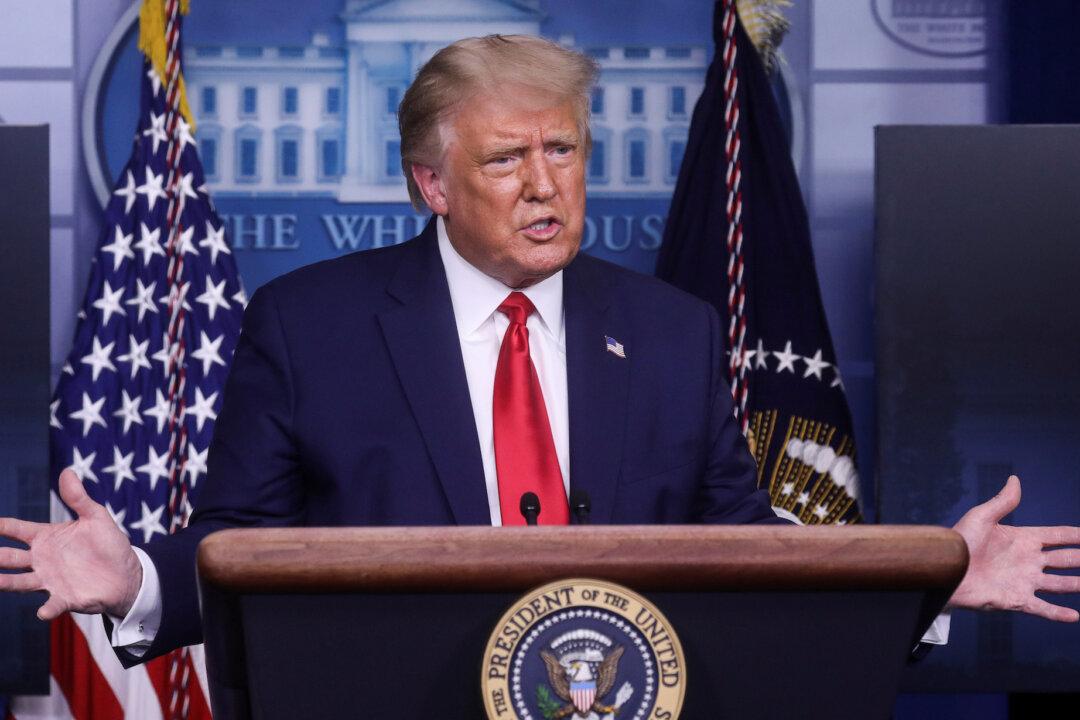President Donald Trump had harsh words for the World Trade Organization (WTO) in a press briefing Sept. 16, accusing the transnational body of taking advantage of America “to suck money and jobs out of the United States to the benefit of China and other countries.”
Trump was asked about whether the United States should remain part of the WTO after its recent ruling against the United States over $200 billion in tariffs on China. The WTO’s three-member panel ruled that the U.S. duties broke trading rules because they applied only to China and were above maximum rates agreed to by the United States, and that, when the tariffs were imposed, Washington didn’t adequately explain why its measures were a justified exception.





